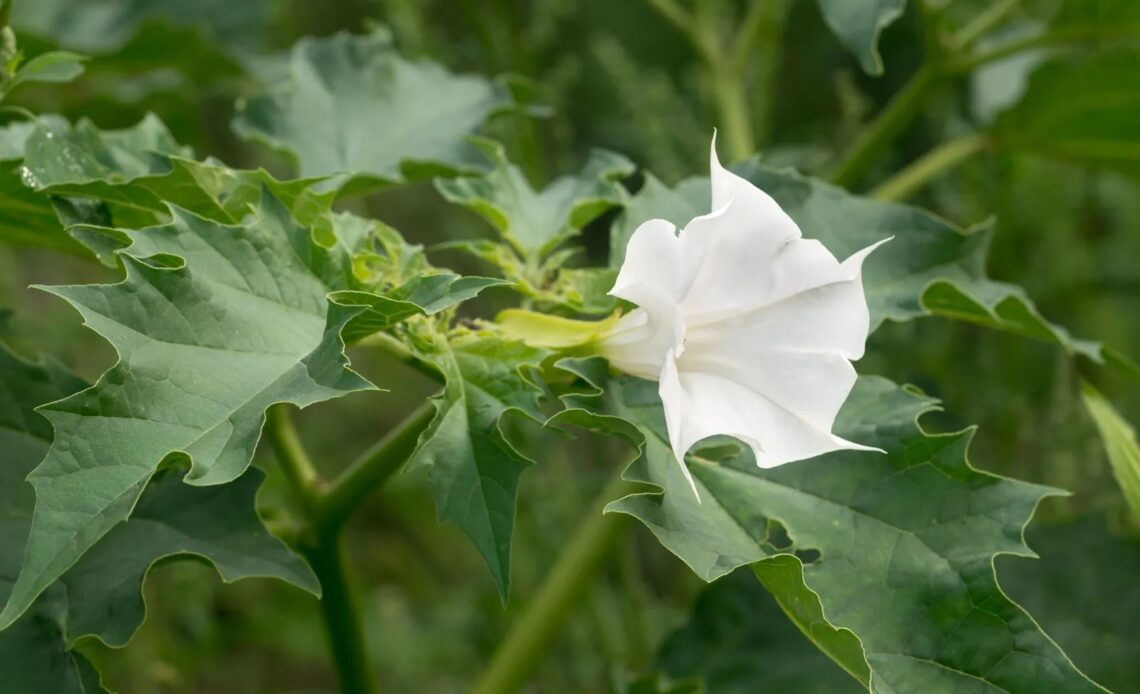Datura stramonium, commonly known as Jimson weed or Devil’s trumpet, is a plant that can be found in many parts of the world. While it is often admired for its striking flowers, Datura stramonium is widely recognized for its dangerous properties. This plant contains toxic compounds that can pose serious health risks if ingested or improperly handled. In this article, we will explore the health risks associated with Datura stramonium, its toxic effects on the body, and why it’s important to be aware of this plant, particularly if you are in areas where it grows.
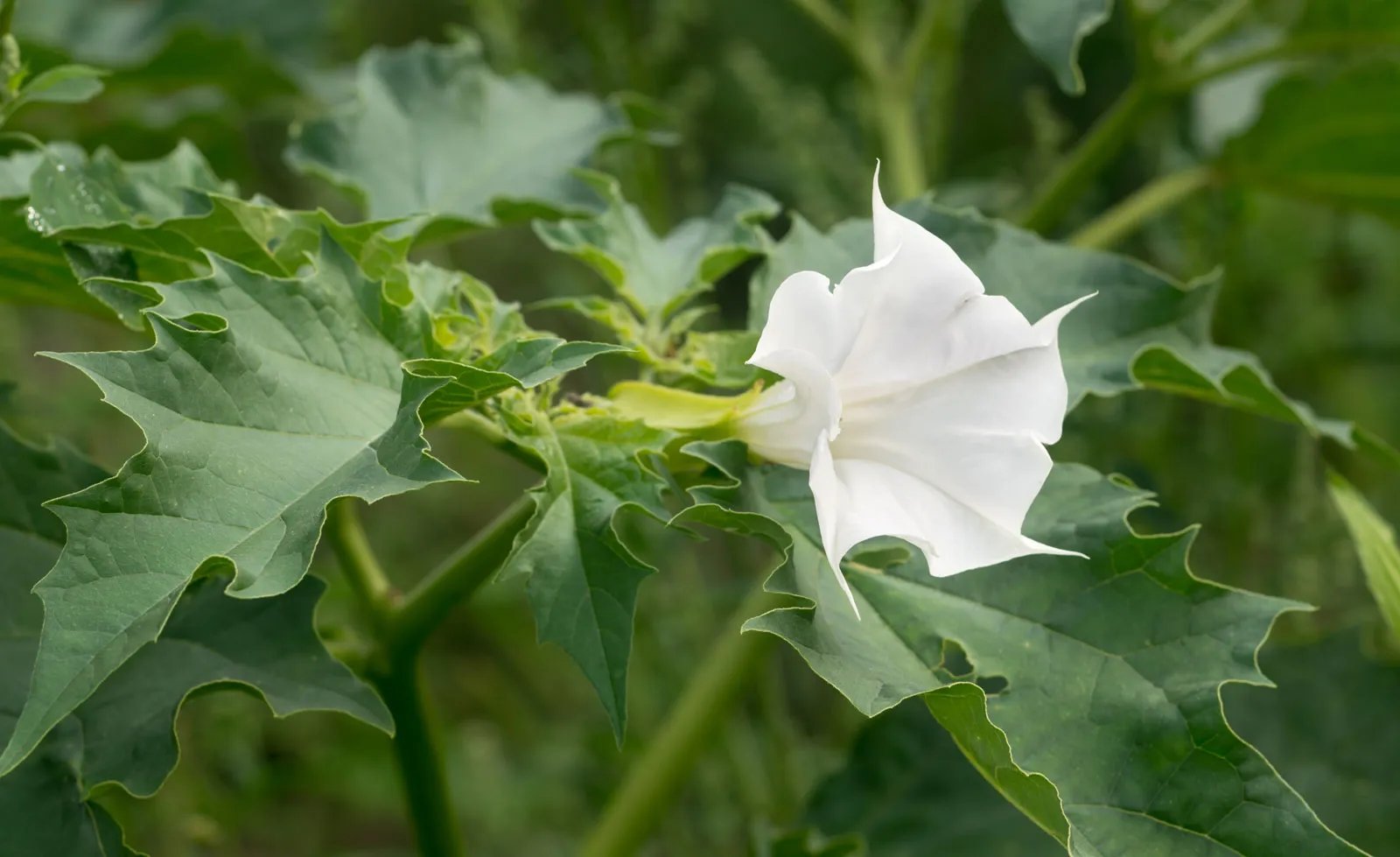
**What is Datura Stramonium?**
Datura stramonium is a flowering plant belonging to the Solanaceae family, which also includes other well-known plants such as tomatoes, peppers, and eggplants. Native to North America, the plant has spread to other parts of the world and is now found in many countries. Datura stramonium has large, trumpet-shaped white or purple flowers and spiky seed pods that contain the plant’s toxic compounds.
Historically, parts of the plant have been used in traditional medicine for various purposes, but it has also gained notoriety for its psychoactive properties. Despite its historical use, the plant remains highly dangerous due to its toxic alkaloids, including atropine, scopolamine, and hyoscyamine. These compounds can lead to serious poisoning, even in small doses.
**The Toxic Compounds in Datura Stramonium**
The primary cause of toxicity in Datura stramonium is the presence of alkaloids, which can have severe effects on the body. The key alkaloids found in the plant are:
1. **Atropine** – Atropine is known for its ability to block certain neurotransmitters in the nervous system, which can lead to symptoms such as dry mouth, dilated pupils, and tachycardia (increased heart rate).
2. **Scopolamine** – Scopolamine can cause confusion, agitation, hallucinations, and delirium. It affects the brain by blocking acetylcholine receptors, which are crucial for communication between nerve cells.
3. **Hyoscyamine** – Similar to atropine, hyoscyamine can cause dilation of the pupils, tachycardia, and difficulty swallowing. It has a strong anticholinergic effect, leading to dry mouth, blurry vision, and hallucinations.
These alkaloids can affect the central nervous system, cardiovascular system, and digestive system, making Datura stramonium extremely dangerous for human health.
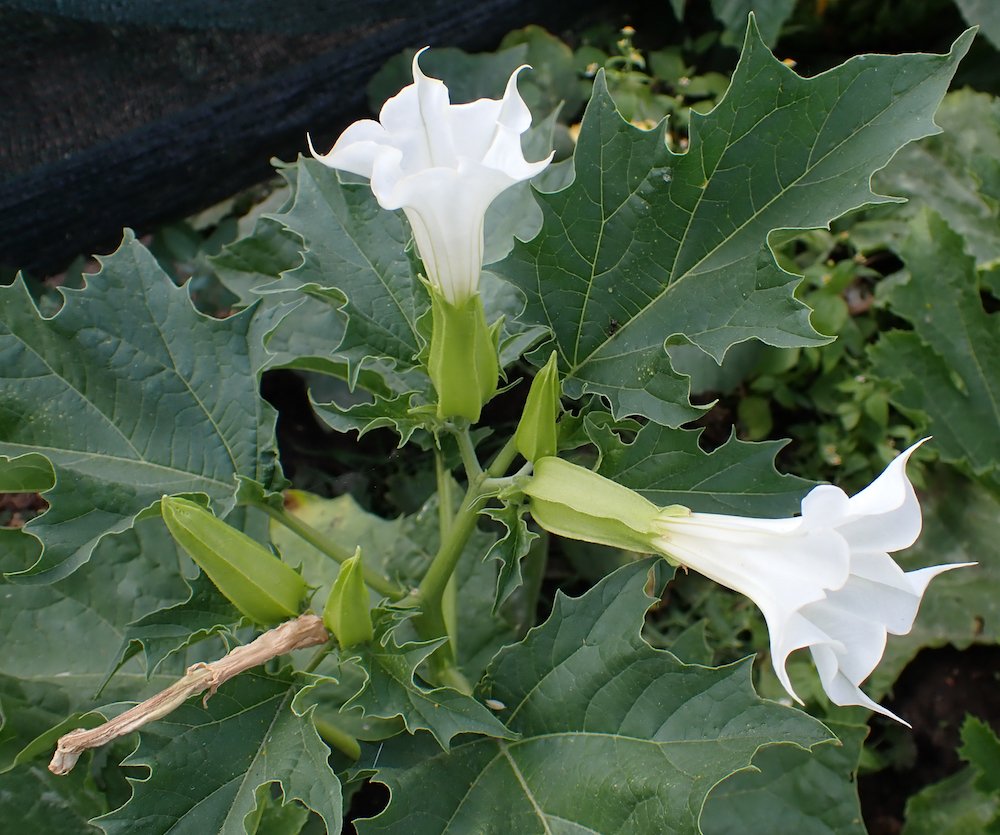
**Health Risks and Symptoms of Datura Stramonium Poisoning**
Datura stramonium poisoning can occur after ingesting any part of the plant, including the leaves, seeds, or flowers. It is important to note that poisoning can also occur from skin contact with the plant’s sap or from inhaling the smoke of burning plant material. The severity of poisoning depends on factors such as the amount ingested, the part of the plant consumed, and the individual’s health condition.
### Common Symptoms of Poisoning:
– **Dilated pupils** and blurred vision
– **Dry mouth** and difficulty swallowing
– **Increased heart rate** (tachycardia)
– **Fever** and flushed skin
– **Hallucinations** and delirium
– **Severe agitation** or confusion
– **Nausea** and vomiting
– **Difficulty breathing**
– **Seizures** (in extreme cases)
Ingesting large amounts of Datura stramonium can lead to coma or even death. Due to the plant’s potent effects on the nervous system, it is difficult to predict how an individual will react to poisoning, which adds to its dangerous nature.
**Who Is at Risk?**
Anyone can be at risk for Datura stramonium poisoning, especially if they are unaware of the plant’s toxicity. However, certain groups of people are more vulnerable:
1. **Children** – Due to their smaller size and tendency to explore their surroundings, children are at higher risk of ingesting toxic plants like Datura stramonium.
2. **Recreational Users** – Some individuals seek out the psychoactive effects of Datura stramonium, despite its dangers. Ingesting the plant for its hallucinogenic properties can lead to severe poisoning.
3. **Untrained Herbalists** – Those who use plants for medicinal or herbal purposes may accidentally misuse Datura stramonium, not fully understanding the risks involved.
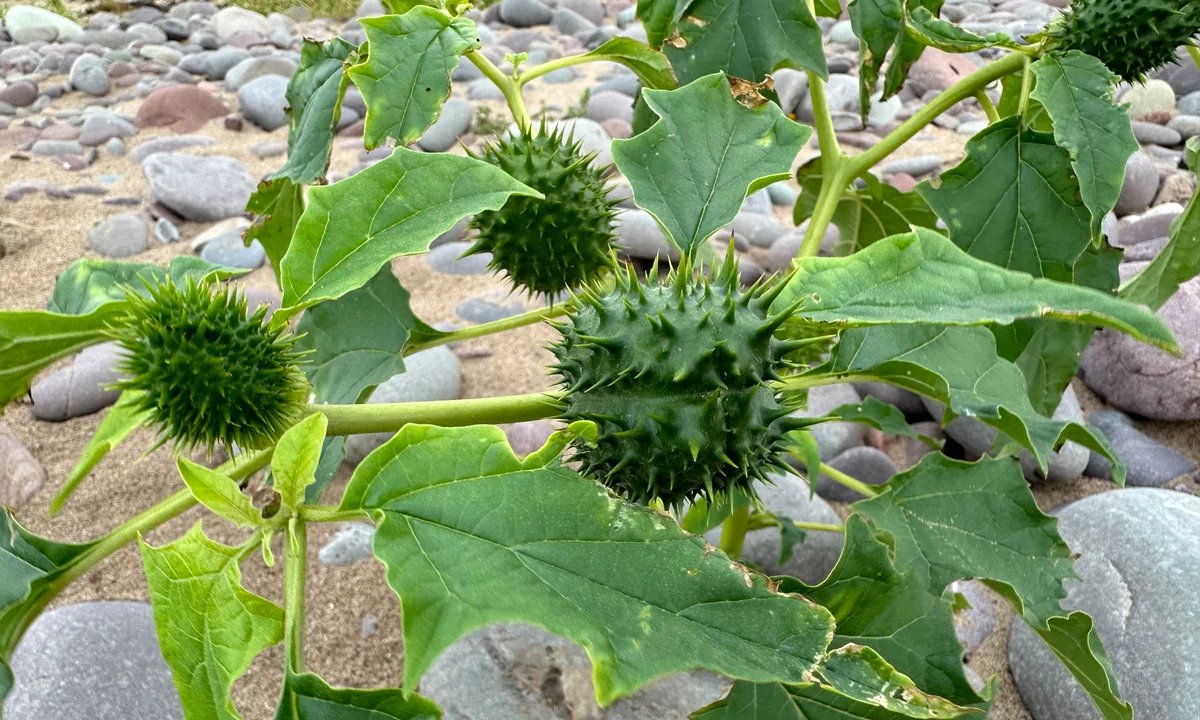
**What To Do in Case of Poisoning?**
If you or someone you know is suspected of ingesting Datura stramonium or coming into contact with its toxic parts, it is critical to seek medical attention immediately. Poisoning can progress rapidly, and treatment often requires the administration of activated charcoal to limit the absorption of toxins and specific medications to reverse the effects of the alkaloids.
**Prevention and Awareness**
The best way to avoid the dangers of Datura stramonium is through awareness and education. People living in areas where the plant grows should be aware of its appearance and the risks it poses. Parents should teach children to avoid picking or eating plants in the wild, and gardeners should take care when handling Datura stramonium in their yards.
For those involved in herbal medicine, it is essential to fully research any plant before using it, ensuring proper identification and understanding of potential health risks. Always consult a healthcare professional before using any plant for medicinal purposes.
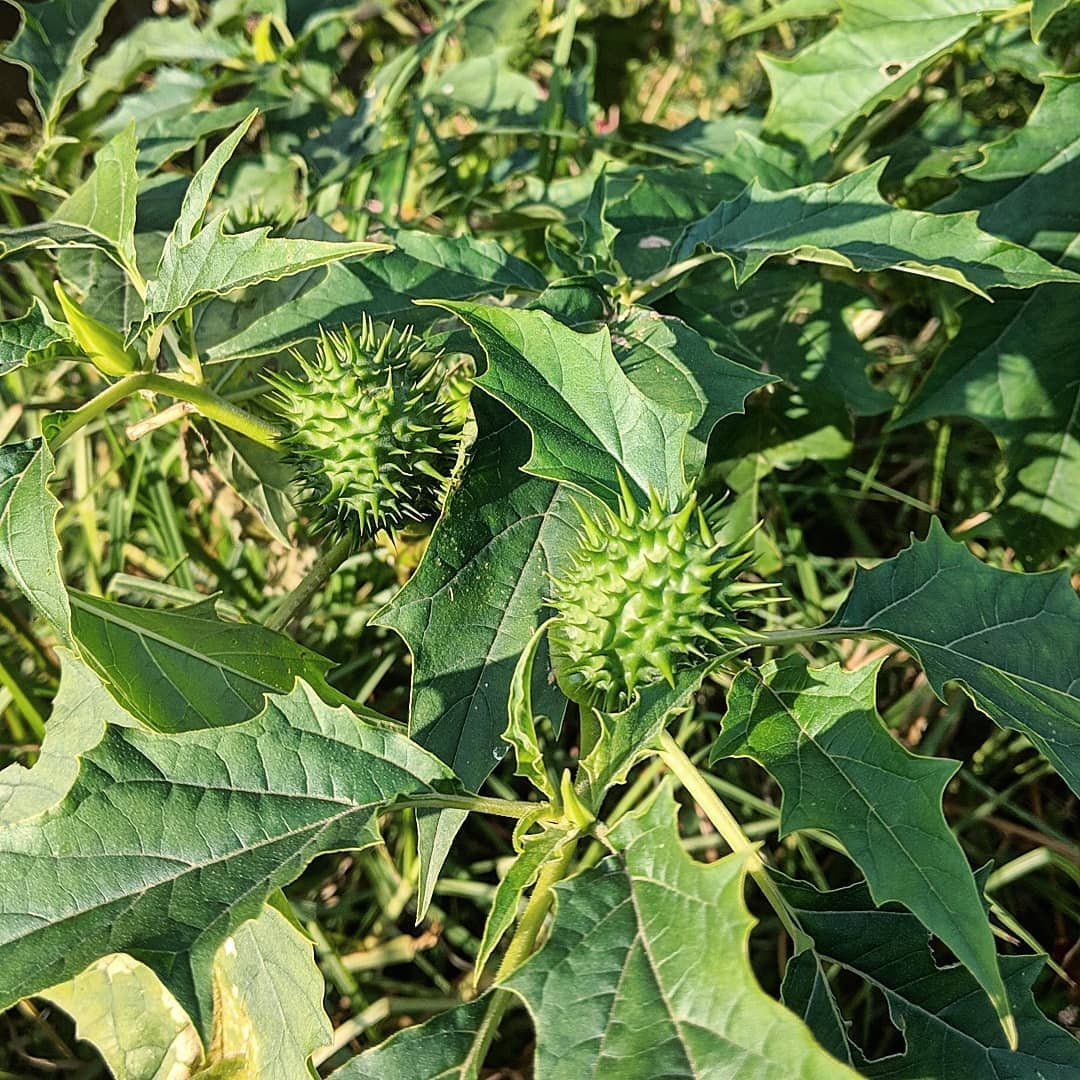
**A Dangerous Plant to Be Aware Of**
Datura stramonium is a deceptively dangerous plant that poses serious health risks to those who come into contact with it. Despite its historical use, the plant’s potent toxic compounds make it a dangerous choice for self-medication or recreational use. By raising awareness of the risks associated with Datura stramonium, we can help prevent poisoning and protect ourselves and others from its harmful effects.
If you encounter Datura stramonium, exercise caution and keep it out of reach of children and pets. Understanding the dangers of this plant is key to keeping our environment safe and avoiding unnecessary health risks.
